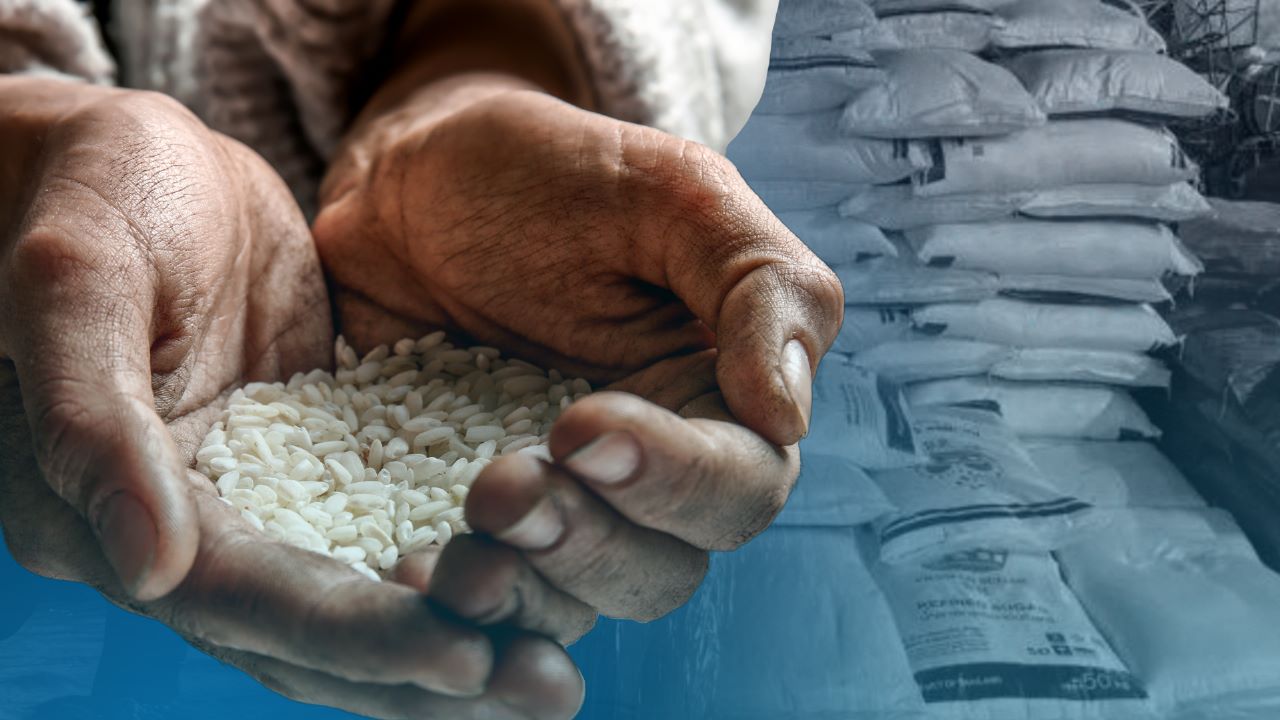
RICE COMPOSITE IMAGE from Inquirer file and stock photos
MANILA, Philippines — The Philippines is working to attain rice self-sufficiency by 2028, according to House Speaker Martin Romualdez.
Romualdez said the Department of Agriculture (DA) and the Department of Public Works and Highways (DPWS) have started efforts to achieve this goal, including constructing irrigation systems.
READ: Marcos formalizes rice tariff cut via EO 62
“We are doing an all-of-government approach, so DA, NIA (National Irrigation Administration), NFA (National Food Authority), and the executive and legislative will join forces,” he said on Sunday.
“The DPWH will construct CIS (Comprehensive Irrigation Systems) interconnected to impound water, so that there will be flood control and water for the drinking and reservoir,” he added in Filipino.
Leyte’s 1st district representative said this move would also help the country not depend on rice importation and lower the rice prices.
“We should also prepare a long-term plan to no longer be dependent on rice imports before he (President Ferdinand Marcos Jr.) steps down. Rice self-sufficiency is essential. So, our rice fields need to be more efficient; we need irrigation and a lot more irrigation,” Romualdez added.
Marcos ordered a tariff cut on rice and other select products last month. According to the Palace, Executive Order (EO) No. 62 will cut the rice levy from 35 percent to 15 percent.
“The implementation of an updated comprehensive tariff schedule aims to augment supply, manage prices, and temper inflationary pressure of various commodities, consistent with the Philippine national interest and the objective of safeguarding the purchasing power of Filipinos,” Marcos explained in EO 62.
READ: Supreme Court asked to nullify EO 62 lowering tariffs on agri products
Agricultural groups, however, filed a petition asking the Supreme Court to nullify EO 62, saying that it was hastily issued without consultation, investigation, and hearing, which are required under Republic Act 10863 or the Flexible Clause of Customs Modernization and Tariff Act.
Among the petitioners were Samahang Industriya ng Agrikultura Inc., the Federation of Free Farmers Inc., United Broiler Raisers Assn. 1 Inc., Sorosoro Ibaba Development Cooperative, and Magsasaka Partylist Rep. Argel Cabatbat.
They pointed out that reducing tariffs on staple products such as corn “poses significant challenges for local farmers” and “can lead to an influx of cheaper imported goods, undermining domestic producers’ and farmers’ sales and products.”